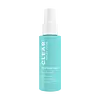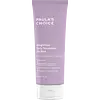What's inside
What's inside
 Key Ingredients
Key Ingredients

 Benefits
Benefits

 Concerns
Concerns

 Ingredients Side-by-side
Ingredients Side-by-side

Water
Skin ConditioningDipropylene Glycol
HumectantButylene Glycol
HumectantPolysorbate 20
EmulsifyingPentylene Glycol
Skin ConditioningSalicylic Acid
MaskingPanthenol
Skin ConditioningSodium Hyaluronate
HumectantDipotassium Glycyrrhizate
HumectantGlycyrrhiza Glabra Root Extract
BleachingBerberis Vulgaris Root Extract
AntimicrobialLauric Acid
CleansingAllantoin
Skin ConditioningGlycerin
HumectantPEG/PPG-17/6 Copolymer
SolventMethyl Gluceth-20
HumectantGlycereth-26
HumectantSodium Hydroxide
BufferingSodium Metabisulfite
AntioxidantDisodium EDTA
Potassium Sorbate
PreservativeWater, Dipropylene Glycol, Butylene Glycol, Polysorbate 20, Pentylene Glycol, Salicylic Acid, Panthenol, Sodium Hyaluronate, Dipotassium Glycyrrhizate, Glycyrrhiza Glabra Root Extract, Berberis Vulgaris Root Extract, Lauric Acid, Allantoin, Glycerin, PEG/PPG-17/6 Copolymer, Methyl Gluceth-20, Glycereth-26, Sodium Hydroxide, Sodium Metabisulfite, Disodium EDTA, Potassium Sorbate
Water
Skin ConditioningButylene Glycol
HumectantCetyl Alcohol
EmollientPPG-14 Butyl Ether
Skin ConditioningSalicylic Acid
MaskingDimethicone
EmollientTocopheryl Acetate
AntioxidantChamomilla Recutita Flower Extract
MaskingEpilobium Angustifolium Extract
Skin ConditioningCamellia Oleifera Leaf Extract
AstringentVanilla Planifolia Fruit Extract
Skin ConditioningBisabolol
MaskingAllantoin
Skin ConditioningCyclopentasiloxane
EmollientCyclohexasiloxane
EmollientDimethiconol
EmollientPEG-40 Stearate
EmulsifyingSorbitan Stearate
EmulsifyingPvm/Ma Decadiene Crosspolymer
Polyacrylamide
C13-14 Isoparaffin
EmollientLaureth-7
EmulsifyingDisodium EDTA
Sodium Hydroxide
BufferingHexylene Glycol
EmulsifyingCaprylyl Glycol
EmollientCaprylic/Capric Triglyceride
MaskingEthylhexylglycerin
Skin ConditioningPhenoxyethanol
PreservativeWater, Butylene Glycol, Cetyl Alcohol, PPG-14 Butyl Ether, Salicylic Acid, Dimethicone, Tocopheryl Acetate, Chamomilla Recutita Flower Extract, Epilobium Angustifolium Extract, Camellia Oleifera Leaf Extract, Vanilla Planifolia Fruit Extract, Bisabolol, Allantoin, Cyclopentasiloxane, Cyclohexasiloxane, Dimethiconol, PEG-40 Stearate, Sorbitan Stearate, Pvm/Ma Decadiene Crosspolymer, Polyacrylamide, C13-14 Isoparaffin, Laureth-7, Disodium EDTA, Sodium Hydroxide, Hexylene Glycol, Caprylyl Glycol, Caprylic/Capric Triglyceride, Ethylhexylglycerin, Phenoxyethanol
 Reviews
Reviews

Ingredients Explained
These ingredients are found in both products.
Ingredients higher up in an ingredient list are typically present in a larger amount.
Allantoin is a soothing ingredient known for its protective and moisturizingg properties. Because of this, it is often added to products with strong active ingredients.
Studies show higher concentrations of this ingredient can promote wound healing.
Though it can be derived from the comfrey plant, allantoin is produced synthetically for cosmetic products to ensure purity.
Learn more about AllantoinButylene Glycol (or BG) is used within cosmetic products for a few different reasons:
Overall, Butylene Glycol is a safe and well-rounded ingredient that works well with other ingredients.
Though this ingredient works well with most skin types, some people with sensitive skin may experience a reaction such as allergic rashes, closed comedones, or itchiness.
Learn more about Butylene GlycolDisodium EDTA plays a role in making products more stable by aiding other preservatives.
It is a chelating agent, meaning it neutralizes metal ions that may be found in a product.
Disodium EDTA is a salt of edetic acid and is found to be safe in cosmetic ingredients.
Learn more about Disodium EDTASalicylic Acid (also known as beta hydroxy acid or BHA) is a well-known ingredient for treating skin that struggles with acne and clogged pores. It exfoliates both the skin's surface and deep within the pores to help clear out buildup, control oil, and reduce inflammation.
Unlike AHAs (alpha hydroxy acids), salicylic acid is oil-soluble. This allows it to penetrate into pores which makes it especially effective for treating blackheads and preventing future breakouts.
Salicylic acid is also known for its soothing properties. It has a similar structure to aspirin and can calm inflamed or irritated skin, making it a good option for acne-prone skin that is also sensitive.
Concentrations of 0.5-2% are recognized by the U.S. FDA as an over-the-counter topical acne product.
It can cause irritation and/or dryness if one's skin already has a compromised moisture barrier, so it's best to focus on repairing that before introducing this ingredient into your routine.
While salicylic acid does not increase sun sensitivity, it’s still important to wear sunscreen daily to protect your skin.
If you are looking for the ingredient called BHA or Butylated Hydroxyanisole, click here.
Learn more about Salicylic AcidSodium Hydroxide is also known as lye or caustic soda. It is used to adjust the pH of products; many ingredients require a specific pH to be effective.
In small amounts, sodium hydroxide is considered safe to use. However, large amounts may cause chemical burns due to its high alkaline.
Your skin has a natural pH and acid mantle. This acid mantle helps prevent harmful bacteria from breaking through. The acid mantle also helps keep your skin hydrated.
"Alkaline" refers to a high pH level. A low pH level would be considered acidic.
Learn more about Sodium HydroxideWater. It's the most common cosmetic ingredient of all. You'll usually see it at the top of ingredient lists, meaning that it makes up the largest part of the product.
So why is it so popular? Water most often acts as a solvent - this means that it helps dissolve other ingredients into the formulation.
You'll also recognize water as that liquid we all need to stay alive. If you see this, drink a glass of water. Stay hydrated!
Learn more about Water